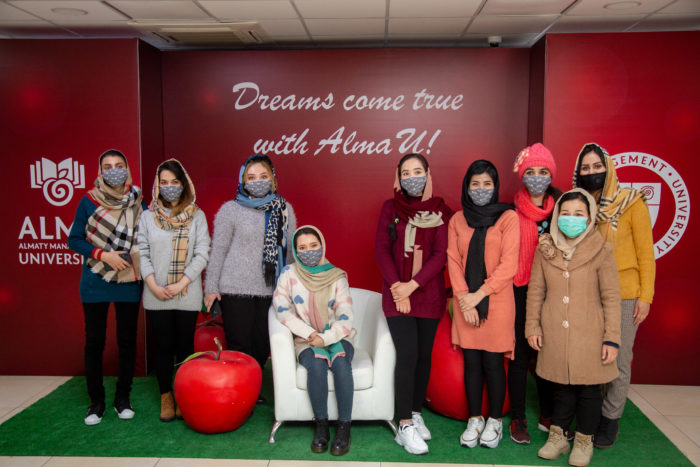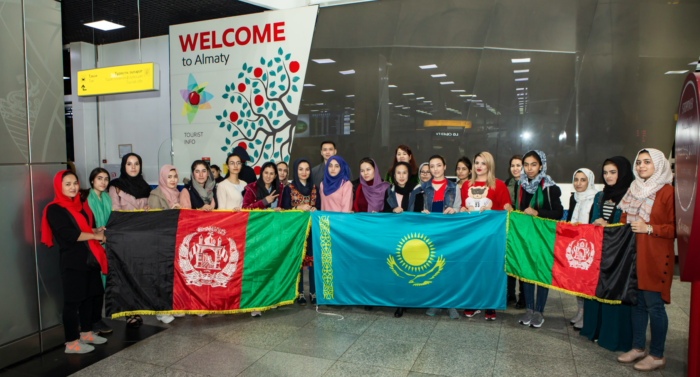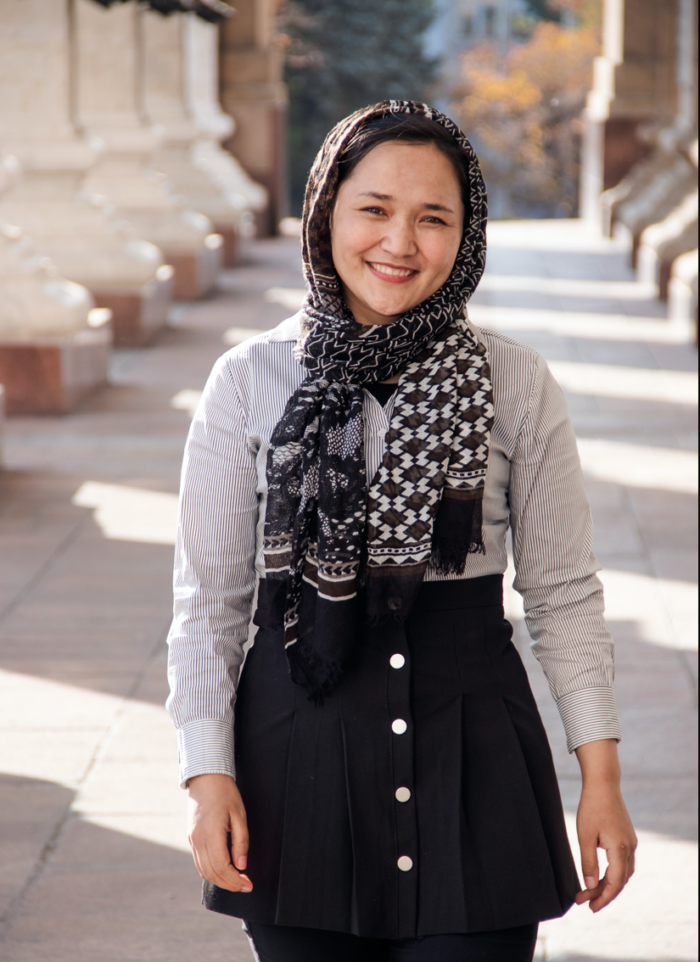NUR-SULTAN – Ten recipients of the scholarships funded by the European Union (EU) from Afghanistan are set to start their online English language classes at the Almaty Management University (AlmaU) Language School, the press service of the EU Delegation in Kazakhstan reported. Upon completion, they will study mining at the Kazakh-British Technical University (KBTU).

The second cohort of ten Afghan women arrived in Almaty to pursue education on Dec.9 2020. Photo credit: UNDP in Kazakhstan.
In 2019, the EU, the United Nations Development Programme (UNDP) and Kazakhstan launched an education program to train several dozen Afghan women in Kazakh universities over the next six years. The project runs as part of the $2.4 million grant provided by the EU to support Afghan women. Overall, 50 women will receive higher, technical and vocational education at Kazakh and Uzbek universities by 2025.
As part of the project, 30 Afghan women, who started their language training in October 2019, are currently studying agriculture, finance and mining online at the Satbayev University, the Kazakh-British Technical University and the Kazakh National Agrarian University.

The first group of Afghan students came to Almaty on Oct. 2019.
EU Ambassador to Kazakhstan Sven-Olov Carlsson noted that the role of women in achieving economic growth and sustainable development. “Women economic empowerment is crucial to the progress of any country. According to the new EU Strategy for Central Asia, it is in the joint interest of the EU and of Central Asian states to intensify cooperation to promote peace and stability in Afghanistan,” said Carlsson.
According to the 2019 UNDP Human Development Report, only 13 percent of Afghan women have completed a secondary education, while 37 percent men have. Poverty, security issues, gender stereotypes and social norms are among the main causes for the limited access to education.

Jamila Bahrami
“The UNDP in Kazakhstan is very proud to be part of this important joint initiative,” said UNDP Resident Representative in Kazakhstan Yakup Beris. “We strongly believe that the development of any society is impossible without the full and active participation of women. Empowering women by removing existing barriers and inequalities is vital for them to stand on equal footing with men and to be able to contribute to their communities and economies.”
Recently, the UNDP office in Kazakhstan shared the story of 27-year student Jamila Bahrami from Afghanistan who is currently studying at the Technical and Vocational Education and Training (TVET) program in Finance in Almaty.
Bahrami completed the TVET classes at Administration and Accounting Institute in Afghanistan and now she is eager to start her career in research. “I have enrolled at the TVET program in Kazakhstan because I want to get practical experience and increase my professional skills in finance and statistics,” she added.
Distance learning also includes weekly office hours with professors. Bahrami feels grateful for the opportunity to share her university life with students from different countries. “I am glad to be in a community where local and international students communicate and spend time together,” she said.
Students at the KBTU also have an opportunity to get an internship in some organization or attend practical classes at the Bloomberg or the Astana International Financial Centre (AIFC) laboratories.
Rector of KBTU Kenzhebek Ibrashev said that the university welcomes Afghan women as their students and hopes they will enjoy their time at the university. “The university pays close attention to the quality of its academic program and professional skills of its teaching staff. Yet, infrastructure, student life events and online platforms during distance learning are also important,” said Ibrashev.
